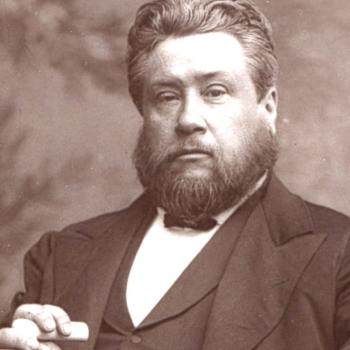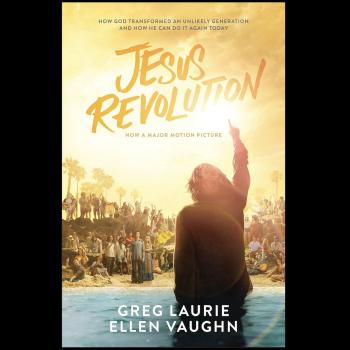Had an interesting email that I have permission to publish from one of my readers who has entered my Galatians challenge:
Hi there
I browse your blog now and then, & saw the Galatians challenge. Then I thought, “well, that’s a bit much work really for just a blog that I like to stop by sometimes.” Then you asked again and I though oh well ok. 🙂
I thought I’d rather respond through email than in my usual blog spot since our blog is generally devoted to apologetics and we don’t do sermons …
1. What do we know about the audience and setting of this book (ie who is it written too, when was it written, why was it written, what do we know about the man who wrote it)
Paul needed to remind the churches in Galatia about the message sent by God, not the messages sent by men. Paul was called by Jesus himself just as the original apostles were. He met with them to confirm that they shared the same message from God. When? Early in church history, where the Jewish Christians were still considering asking for the circumcision of the Gentile Christians.
2. What impact would this book have had on its original readers- what key messages are they likely to have remembered?
I think they would have gathered that God’s Spirit did not come to them by observing special days or circumcision, but by believing on Christ; that believers were free from the law; that even Peter had admitted it. I doubt the first impression would have gone much beyond that, though there is much more to be gained.
3. How does the situation the book was written in differ, and how is it similar to the situation we face today as christians
Nobody’s trying to get the men to be circumcised these days instead, the synagogue and the church have largely been estranged. But what group has not let its own extra laws creep in? Thou shalt not smoke, drink, dance? Thou shalt not wear makeup? Thou shalt speak in tongues? Thou shalt enroll thy children in a Christian private school or home school? Even the good old thou shalt keep Saturday as the Sabbath. But what if I haven’t hit your personal “thou shalt (not)” yet? If we think the letter was written to them, not us then we might as well skip it. There’s sin enough in our own ranks. If there’s more observance we look for than faith expressing itself through love we’re in trouble; and usually if there’s something more than that, it’s gone so far as to take the place of faith expressing itself through love. Back on the chain gang, prisoners of a message that fetters us and does not free us, prevents us from serving God rather than helping us.
These days also it’s very common for people to forget that the message is Christ crucified and risen. That is the message from God. That is how the Holy Spirit is received, when we believe what we heard: Christ crucified and raised from the dead. We put on Christ, we have died with Christ, we have risen with Christ, we are clothed with Christ, and in the Spirit which Christ sent we live freely and eagerly doing things against which there is no law.
4. What is God saying to me from this passage? What key points would I want to get accross in a sermon or series of sermons on this book?
First sermon: being acquitted (justified) by God. There is no effort, no act of will, no rule to keep that can justify you before God. There is no obedience or service you can render that will bring his Holy Spirit. All of our efforts and acts of will make us look good before man, may gain us the approval of men, but that is not the approval of God even if men should tell us that it is. The message of man is that it is all about us: it is our job to save ourselves and acquit ourselves. The message of God is Christ crucified and risen, our righteousness, our justification, our redeemer who makes us sons of God through Christ. We believe God and it is credited to us as righteousness. We believe God and we receive the Spirit.
Second sermon: being children of God. No longer slaves to sinful nature. No longer slaves to earning the approval of men. Baptized into Christ and clothed with Christ, redeemed by Christ and sealed by the Spirit of Christ we call God our Father. Who then should we be? What then does the Spirit of God do? It does not slave after the approval of men, but neither does it slave after the sinful nature. It freely pursues what is good not grudgingly but naturally. With the Spirit of God we become part of the new creation part of the kingdom of heaven which we proclaim.
5. What will change in my life as a result of this study? What do I want to see happen to the people who hear me as a result of this study?
First sermon: I would want people (always myself included) to be free of the fear and hopelessness of trying to earn God’s approval by our own tainted efforts, free of the hypocrisy and self-deceit that must come when we try to think we can do this, free from the rule-making and emphasis on mere externals that are the only way to make a legalistic scheme work (on paper). And so we substitute bean-counting for love and holiness. I would want the despair and dishonesty to give way to hope and honesty when we realize that God is good and has redeemed us. I would probably spend a good bit of the sermon hammering home exactly how trustworthy God is: how Christ crucified and raised redeems us, which is the only message that brings peace to the heart and God’s Spirit to our lives.
Second sermon: Aim for recognition of false religious goals and of being slaves to human approval. Aim for understanding of the changes that our redemption makes in our lives: through Christ’s Spirit, we are also sons of God, new creations. The fruits of the Spirit can easily become a new law if we try to manufacture the feelings instead of letting the Spirit build them within us. Spend some time explaining how the fruits of the Spirit are natural growths of trusting that we are redeemed through Christ: focusing on how much God loves us and pours himself out for us builds love in us; focusing on God’s goodness and his power to restore creation builds joy in us; focusing on God’s faithfulness to keep his covenant of forgiveness in Christ builds peace in us, and so for each fruit of the Spirit. The Spirit comes through faith in the message of Christ, and the fruits of the Spirit grow when we look at the message of Christ with trusting and faithful hearts.
6. Given all the above and the resources I have available to me, what illustrations, quotations from other writers, and slogans or soundbites will I use?
I’m lousy at soundbites but one from the old Arthur legends seems appropriate. Not the Monty Python ones, but the older ones, where the Knights were seeking the Grail. Their quest was the grail — or was it? “For what does the Grail serve?” They all got it wrong except Galahad: “It’s mad idolatry that makes the service greater than the God.” Our service to God too easily becomes our idolatry towards what we can do, what we can accomplish, how we can serve.
7. What is the best way to structure all this material?
First sermon: I’d structure this as a contrast between man’s message and God’s message. (Some speakers might try for a more elaborate outline than that, but I like to keep it simple.) First half I’d try to tear down the fear-mongering messages that weaken and imprison us and keep us from serving Christ with whatever
examples I could spot among the people I talked to, starting with myself. I’d hope that people would feel a weight off their shoulders by the end of the first half. I’d spend the next half showing how Christ crucified and risen has given us more than keeping external observances ever could: righteousness before God, the Spirit of God, being sons of God. Depending on a read of the audience, if I’d gotten them far enough, I’d explain to them also a difference between slaves and sons, pulling in what Jesus said. Slaves do what the master says because they are told to and they have to and because they are afraid of punishment. Sons do what the Father says because they love him and they trust what he wants to do and they look for ways to further his wishes, because they know what he wants.
Second sermon: I’d structure this as leaving behind laws, not for lawlessness, but for Christ. I’d work through each of the fruits of the Spirit and how exactly the message of Christ builds that within us.












